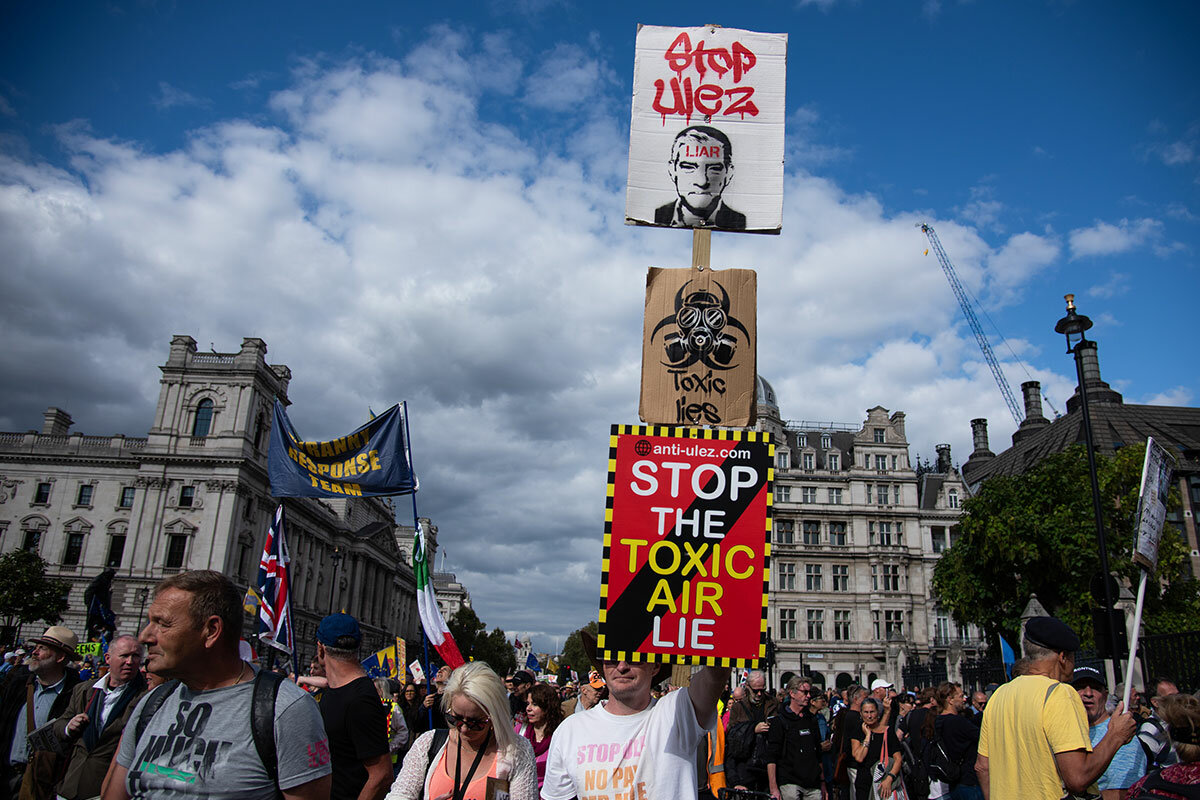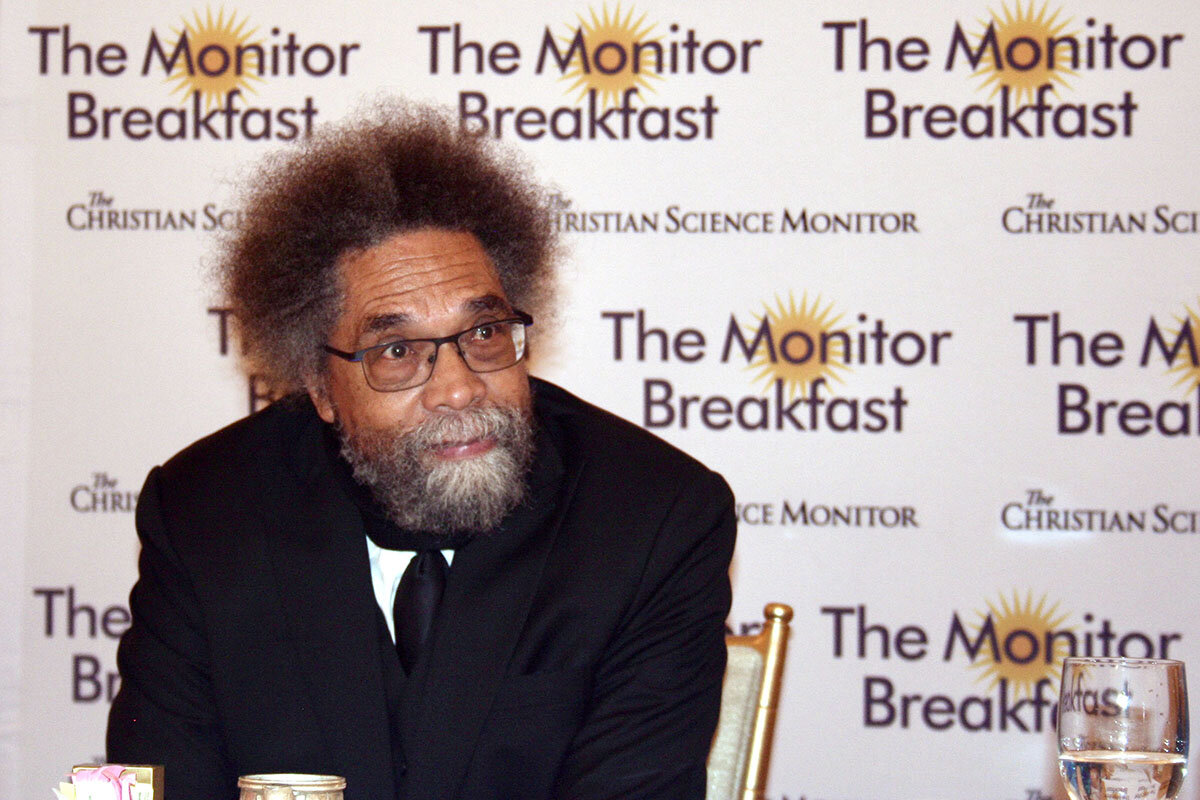A year after overturning Roe v. Wade, the U.S. Supreme Court is now turning its attention to a commonly used drug in abortions.

Why is ���Ǵ��� Science in our name?
Our name is about honesty. The Monitor is owned by The First Church of Christ, Scientist, and we’ve always been transparent about that.
The church publishes the Monitor because it sees good journalism as vital to progress in the world. Since 1908, we’ve aimed “to injure no man, but to bless all mankind,” as our founder, Mary Baker Eddy, put it.
Here, you’ll find award-winning journalism not driven by commercial influences – a news organization that takes seriously its mission to uplift the world by seeking solutions and finding reasons for credible hope.
Explore values journalism About usAlready a subscriber? Log in
Already have a subscription? Activate it
Ready for constructive world news?
Join the Monitor community.
SubscribeMonitor Daily Podcast
- Follow us:
 Mark Sappenfield
Mark Sappenfield
I recently watched the Netflix series “All the Light We Cannot See.” Of course, the Nazi villain was a psychopath, as Nazis tend to be in modern imaginings. Then I read by our film critic, Peter Rainer.
The most chilling thing about the Nazis was probably that, in many ways, they were just normal people. Evil is most dangerous when it is insidious, slipping into the mundane. Each of us can easily guard against becoming a jewel-obsessed Nazi lunatic. But Peter’s column is a poignant reminder of how assiduously we must watch, not the things that enrage us, but the things that don’t.
Already a subscriber? Log in
Help fund Monitor journalism for $11/ month
Monitor journalism changes lives because we open that too-small box that most people think they live in. We believe news can and should expand a sense of identity and possibility beyond narrow conventional expectations.
Our work isn't possible without your support.
Today’s stories
And why we wrote them
( 4 min. read )
( 6 min. read )
Republicans in the House of Representatives voted for an impeachment inquiry of President Joe Biden. We explain what the next steps might be, and what the evidence is so far.
( 6 min. read )
As we saw in the recent COP28 summit, the best environmental intentions often run up against economic realities. It is easiest for wealthy people to adapt, as London is discovering.
Patterns
( 4 min. read )
The European Union wants to make artificial intelligence “trustworthy” and “human-centric.” It will be a landmark test of whether that’s possible – and how.
Monitor Breakfast
( 5 min. read )
Presidential candidate and liberal activist Cornel West sits down with the Monitor’s Linda Feldmann and members of the press for a Monitor Breakfast to talk about his candidacy and the future of America.
On Film
( 3 min. read )
The Monitor’s critic says “The Zone of Interest” is the most powerful film he’s seen this year. It reveals not so much the banality of evil, he writes, as its nothingness – the deafening silence at the center of a moral void.
The Monitor's View
( 2 min. read )
Seldom does a staff mutiny within so small a firm cast so broad a ripple.
Last week, the German automaker Volkswagen said a Chinese-led inspection of its plant in Xinjiang, a province where state repression has drawn international criticism for years, found no evidence of forced labor. The assessment was endorsed by Löning, a Berlin-based business consultancy focused on human rights. Yesterday its roughly 20 employees publicly challenged the audit’s credibility.
The dispute is a reminder that the economic and security interests of nations cohere through transparency, the rule of law, and regard for human dignity. It comes at a moment when China, grappling with its worst economic slump in decades, faces new demands for openness.
European leaders confronted Chinese leader Xi Jinping in Beijing last week with a list of 13 China-based entities they accuse of breaking international sanctions imposed on Russia over its war in Ukraine. They have also taken steps in recent months to finalize a new European ban on goods made with forced labor.
The new law includes a framework for investigating companies and supply chains. It would take direct aim at the rapidly growing electric vehicle industry in China, where companies like Volkswagen are partnering with state-owned counterparts.
“Clearly, the Europeans are taking a much more robust stance than the Chinese were expecting or wanting to see,” Steve Tsang, director of the SOAS China Institute in London, told The Diplomat yesterday.
At a meeting last week, the Communist Party Politburo declared that it was “necessary to ... strengthen economic propaganda and public opinion guidance” to boost China’s economic recovery in the new year. That nod toward secrecy, however, tells an incomplete story.
In an agreement signed last year with Washington, Beijing opened access for foreign regulators to audit Chinese firms listed on overseas exchanges. Those audits cover both financial matters and social concerns such as labor practices. In most cases so far, foreign assessment teams have had to partner with local counterparts who collect and interpret the data. That is what led to the dispute at Löning. An unnamed Chinese law firm conducted the Volkswagen audit. The top two officials at Löning merely reviewed the assessment.
But a door once opened may be hard to shut. The Public Company Accounting Oversight Board, the main U.S. watchdog, has undertaken an audit of all 200 Chinese companies listed on American stock exchanges this year. It is also auditing the auditors. In a midyear report, the board found that three-fourths of the assessments it reviewed by U.S. and Chinese auditors contained an “unacceptable” level of deficiencies.
Such steps toward transparency and accountability may help seed a gradual shift in China’s governing culture based on secrecy. “Democracies ... have their own competitive advantage: openness,” wrote Christopher Walker, a vice president at the National Endowment for Democracy, in the journal Foreign Affairs. A small office in Berlin has sent Beijing a big reminder.
A ���Ǵ��� Science Perspective
Each weekday, the Monitor includes one clearly labeled religious article offering spiritual insight on contemporary issues, including the news. The publication – in its various forms – is produced for anyone who cares about the progress of the human endeavor around the world and seeks news reported with compassion, intelligence, and an essentially constructive lens. For many, that caring has religious roots. For many, it does not. The Monitor has always embraced both audiences. The Monitor is owned by a church – The First Church of Christ, Scientist, in Boston – whose founder was concerned with both the state of the world and the quality of available news.
( 4 min. read )
We are worthy, at Christmas and always, to answer the divine call to bring joy, healing, and peace to the world.
Viewfinder

A look ahead
Thank you for joining us today. Tomorrow, we’ll take a look at Chile’s fascinating struggle to rewrite its own constitution. A previous draft failed to pass after being panned as too liberal. The new draft has swung the other direction. What are voters thinking as they cast ballots this weekend?
We’ll also have Peter Rainer’s review of “Wonka.” You won’t want to miss it.









